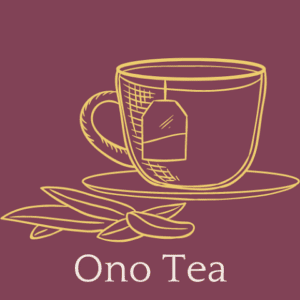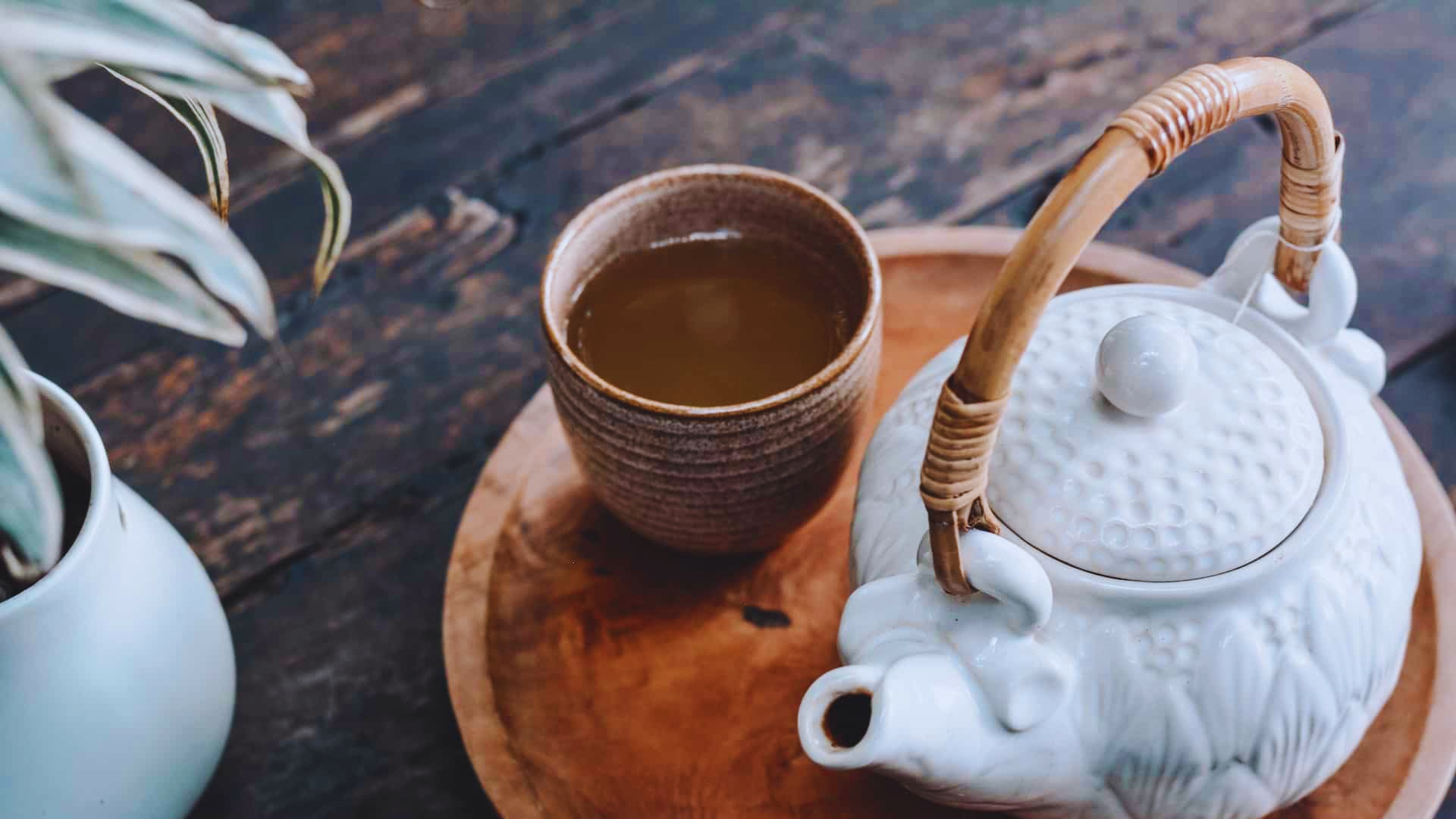Fasting is an old method of losing weight and maintaining a healthy body. It is a common practice in the physiological sciences and even in religious teachings, from Hinduism to Islam and Christianity.
On the other hand, drinking tea has been an ancient practice, part of an ancient diet that promotes natural calm and weight maintenance.
You can drink unsweetened tea during your fasting period. Drinking plain tea ![]() will help you feel full while you are on a fast. However, watch out for what you add to your beverage, as these can break your fast.
will help you feel full while you are on a fast. However, watch out for what you add to your beverage, as these can break your fast.
To understand better why drinking tea is okay during fasting, you must know more about fasting, what it does to your body, and its health benefits.
Why Does Drinking Tea Not Break Fasting?
The main purpose of fasting is weight loss. However, fasting is not about not completely eating. The most important thing about fasting is that you should not consume more than 50 calories of food or beverage.
That is why you should avoid any soft drinks or canned drinks. And the reason why you can consume tea is that, on its own (just the water and tea leaves), the beverage contains less than 50 calories.
Drinking tea on its own does not break a fast. Remember that during fasting, the only beverages you should consume are water and calorie-free liquids, like coffee and tea.
Therefore, the extra ingredients that you add to your cup can make or break your fasting. Adding condiments, even a very small splash, like sugar, nectar, syrups, or cream gives your beverage more calories and drinking that will break your fast.
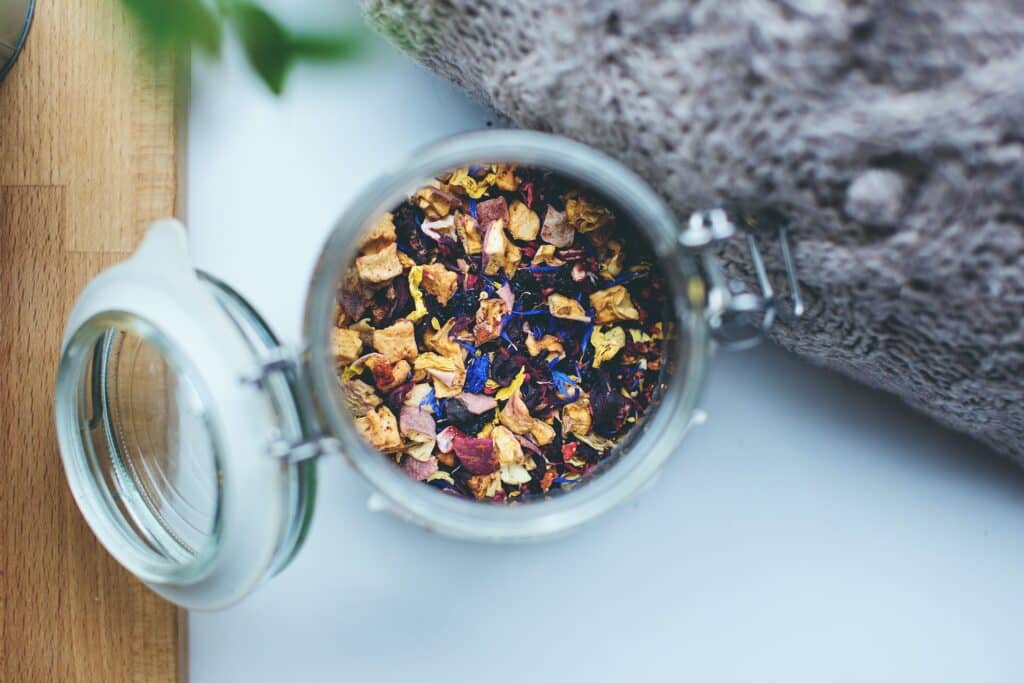
The Benefits of Fasting
There are many forms of fasting. The most common method people use is intermittent fasting. This sort of fasting includes a fasting window where you cannot eat anything and a period where you can eat.
Fasting and a healthy diet trigger increased fat burning and promote weight loss. Fasting also decreases your chance of acquiring cardiovascular disease by lowering your blood pressure.
If you practice intermittent fasting ![]() and diet and pair them with regular exercise, it will help you achieve the best health benefits for your body.
and diet and pair them with regular exercise, it will help you achieve the best health benefits for your body.
Here is a summary of what fasting does for your body:
- Promotes effective weight loss
- Gives you better cognition and sharper memory
- Helps you to sleep better
- Lowers your chances of getting heart disease
What Are the Rules of Fasting?
The most common form of fasting, intermittent fasting, has several important rules to follow. First, you should set a regular fast window, usually 16 hours a day, without eating anything that will break the calorie limit (50 calories). This method gives you eight hours of eating. During this eating period, you can eat as much as possible.
The Effects of Drinking Tea While Fasting
During the time of your fast, you might feel hunger pangs. Drinking tea will help you avoid this by filling your stomach and suppressing the hunger-signaling hormone, which helps decrease feelings of starvation and depression. That’s why drinking several cups of tea helps relax your mind and body.
Also, there is no rule on how much liquid you can consume, and it is much better if you drink as much liquid as possible to keep your stomach full and active. Keeping your stomach active will prepare your guts to digest solid foods during your eating windows, helping you avoid indigestion and stomach stress later. Hence, you should add tea to your intermittent fasting plan.
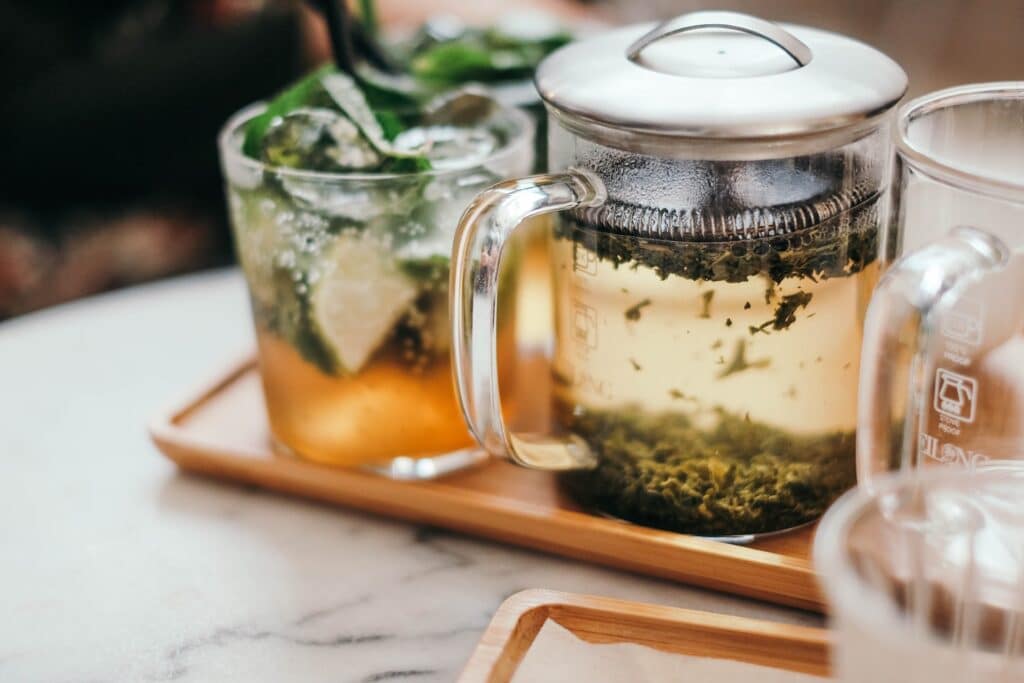
The Effect of Tea Caffeine on Fasting
You might be wondering if caffeine can affect fasting. Both green and black tea contain caffeine. Brewed green tea contains around 28 mg of caffeine for every 8 oz of beverage, while black tea contains more at 47 mg.
Caffeine is not harmful if limited to 400 mg per day. Remember that caffeine tolerance depends on each individual, based on genes, lifestyle, and current health status.
The Best Tea for Intermittent Fasting
So, what are some of the best intermittent fasting teas out there? We have summarized a list for you to help you decide:
Black Tea
Without cream, sugar, or other additives, black tea is a great tea for fasting. A cup contains 1-3 calories. You can enjoy several cups without going beyond the 50-calorie limit.
However, adding sugar has the opposite effect. Moreover, it could ruin your fast even more if you add milk or other ingredients, like tapioca. This gives you boba tea, a type of commercial milk tea beverage that is very popular nowadays. This tea is not acceptable to drink when fasting.
Green Tea
Green tea contains a slightly higher number of calories per cup. Can green tea break your fast? Yes, it can break your fast if you add sugar or other high-calorie additives. The catechins found in green tea are natural antioxidants that fight free radicals in the body.
Herbal Tea
Due to its low number of calories, about three calories, herbal tea is perfectly acceptable to drink while fasting. You can drink any herbal tea, but do not add additives that can add calories, such as milk or sugar. Herbal teas help promote relaxation, making your body naturally calm.
Ginger Tea
A single cup of ginger tea contains two calories, making it a fast and friendly option. But you must avoid adding ingredients or sweeteners rich in calories, like honey, which is a favorite condiment of many for ginger teas.
Honey is sweet; hence, many people would love to take honey while fasting to avoid sweet cravings during a fast. Note that a teaspoon of honey contains around 70 calories, which can break the calorie limit and spike your insulin.
Rooibos Tea
For people new to fasting, digestive discomfort is one of the most common side effects. Rooibos tea helps make the fasting experience more enjoyable by soothing your stomach.
Rooibos has been an old African folk remedy among the natives. They use it to suppress feelings of discomfort and promote fat metabolism.
This tea is also caffeine-free compared to other teas, which makes it a great alternative for people with caffeine sensitivity. Hence, this tea is an excellent beverage to drink during your fasting window.
Oolong Tea
Oolong tea is an ancient Chinese tea that combines the benefits of green and black tea. It’s been a purported fact that drinking oolong tea helps in weight loss and reduces stress levels.
The tea comes from the Camellia sinensis plant; it’s the same plant used to make black and green tea. Oolong is left out in the sun to wilt, green tea uses fresh leaves, and black tea is produced by crushing the leaves completely to enhance oxidation.
Oolong is an intermittent fasting tea that contains l-theanine, a non-protein water-soluble amino acid found in the Camellia sinensis plant. This substance has many health benefits![]() ; it has antioxidant, anti-inflammatory, and anti-anxiety properties.
; it has antioxidant, anti-inflammatory, and anti-anxiety properties.
Peppermint Tea
Peppermint is a savory herbal alternative to tea, which also comes from the Camellia sinensis plant. When brewed, this tea is caffeine free. Thus, it’s a great drink before bedtime to help suppress hunger pangs that might affect your sleep quality while relaxing your body and relieving stress.
Moreover, a concoction of peppermint tea can help calm uncomfortable stomachs and settle your digestion. Hence, it makes your transition to intermittent fasting easier during the initial few days and more comfortable throughout the entire duration.
Matcha Tea
A plain cup of matcha tea contains around three calories. Because of this, drinking matcha will not break your fast. However, keep in mind that matcha lattes are far more calorie-dense and will surely break your fast.
Check out: How to Make Matcha Tea Without Whisk
Combined Loose Leaf Tea
You can combine loose-leaf tea and put it in tea bags to sip in a warm mug of water. As long as you keep the tea with zero carbs and other caloric mix-ins, this should be a great tea during fasting.
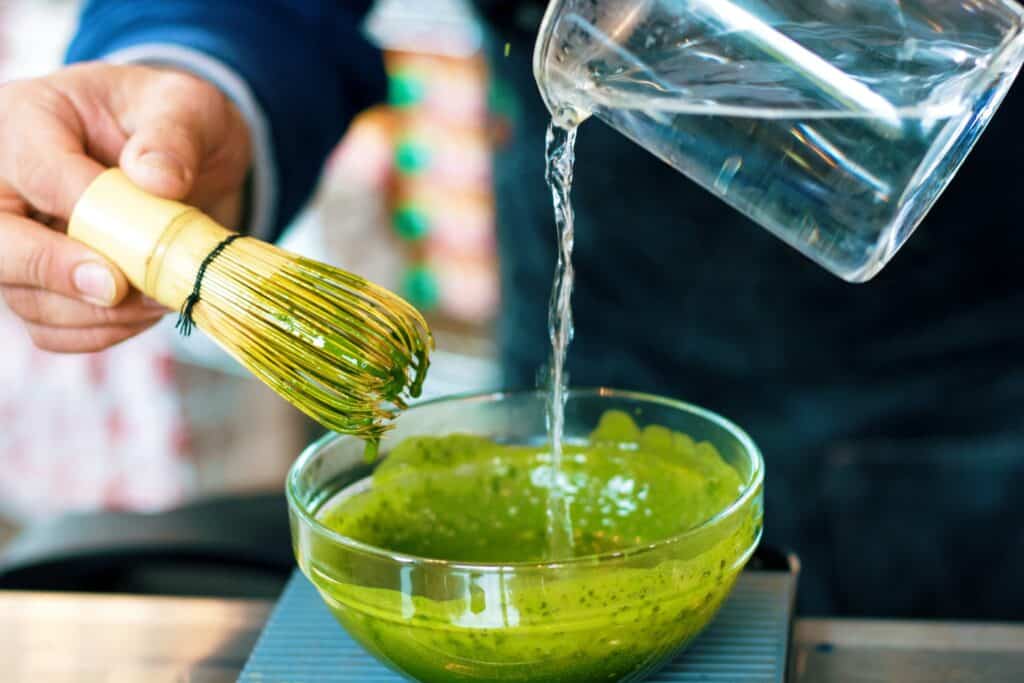
What Tea Can Break Your Fast?
There is intermittent fasting tea, and then there are those beverages that will completely ruin your fasting! We listed a few for you to be aware of.
Chai Tea
Chai tea, primarily an Indian concoction of tea (“chai”), milk, and spices, is a beverage that will break your fast. Moreover, chai tea almost always includes whole milk, which is the best way to bring out the richness of all the other spices added. These spices can include cinnamon, ginger, and cloves.
Most importantly, chai would contain sweeteners, like plain white sugar. Sometimes unrefined cane sugar is also used. Regardless, this fact makes Chai not the best option to drink during fasting.
Gourmet Milk Teas
Milk tea, a common summer beverage popular among Asians, obviously contains ingredients that will break your fast: milk, sugar, artificial flavors, and garnishes like tapioca pearls and jelly. If combined, these ingredients go beyond the 50-calorie limit required during fasting.
Final Thoughts
Remember, fasting is not about not eating but reducing your caloric intake![]() . It is a great way to initially lose a few pounds and sustain safe weight loss. Combine it with regular exercise and food choices based on clinical nutrition facts to reap the most health benefits.
. It is a great way to initially lose a few pounds and sustain safe weight loss. Combine it with regular exercise and food choices based on clinical nutrition facts to reap the most health benefits.
You can only break your fast if you consume more than 50 calories of food or beverage. A single cup of tea, without added ingredients like sugar, cream, or syrups, only contains between one and three calories. So if you are only drinking a cup or two, it will not break your fast. Adding calorie-free sweeteners may help improve the flavor and make drinking tea more enjoyable during fasting periods.
Gourmet drinks like tea lattes and other sweet teas contain too many calories, and you should avoid them while fasting. However, you can enjoy these beverages during your eating windows to reduce cravings. So, stick to plain tea for a while and earn the full benefits of fasting.
